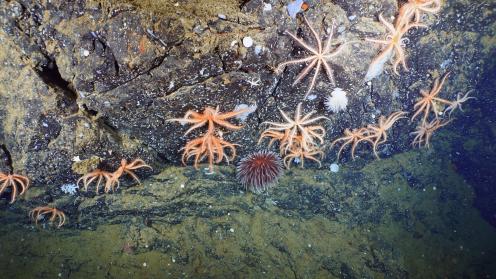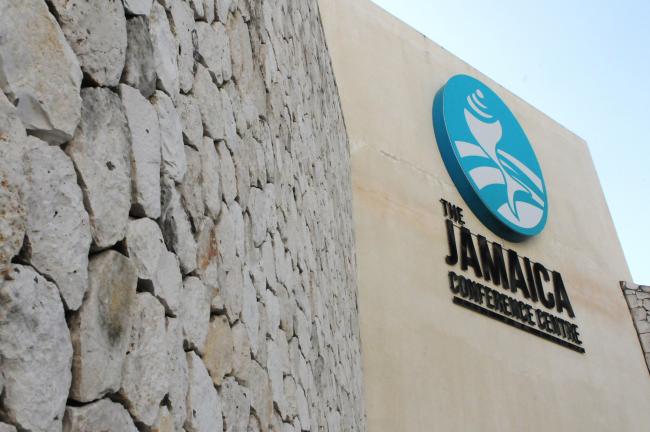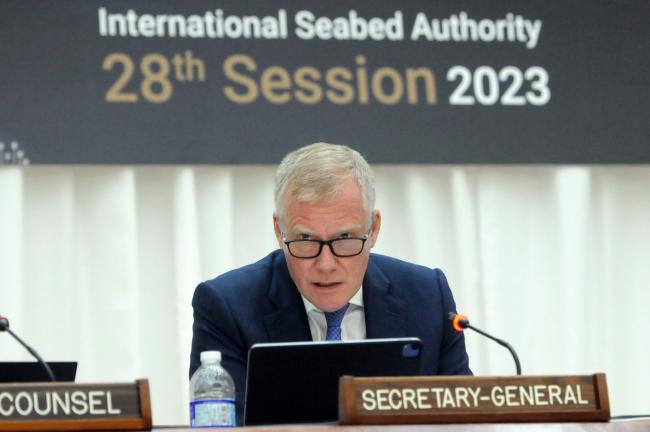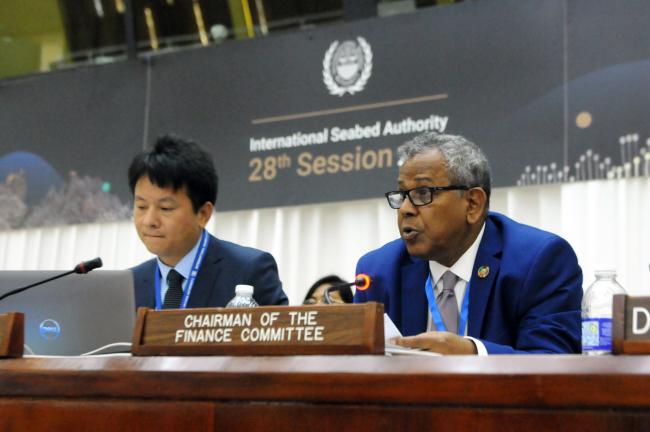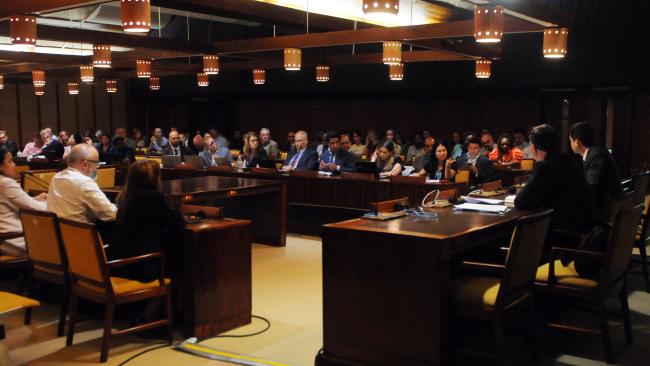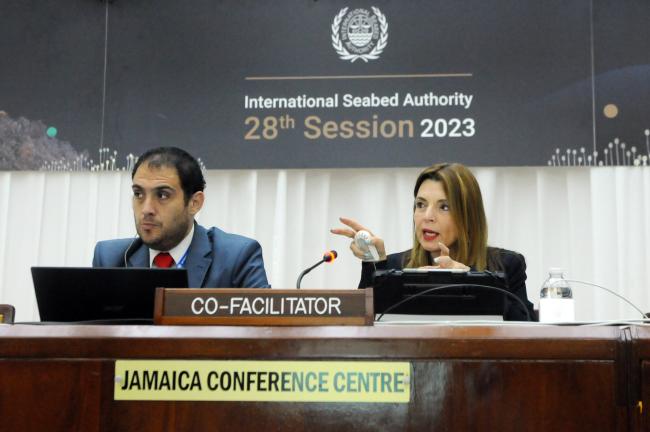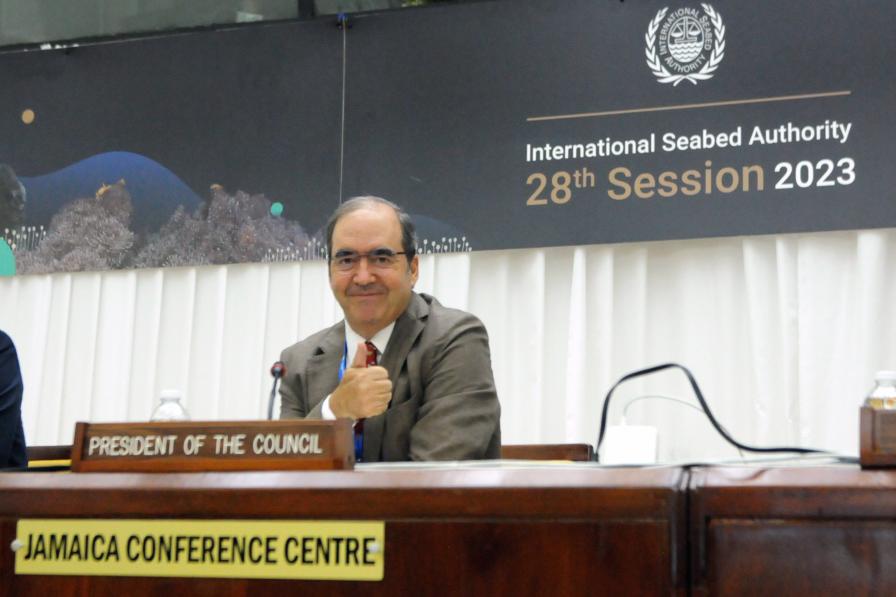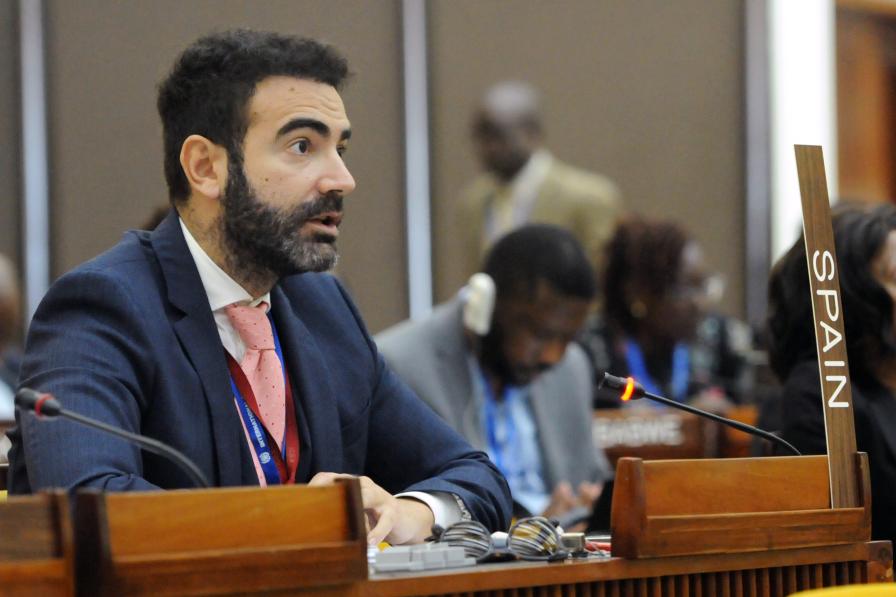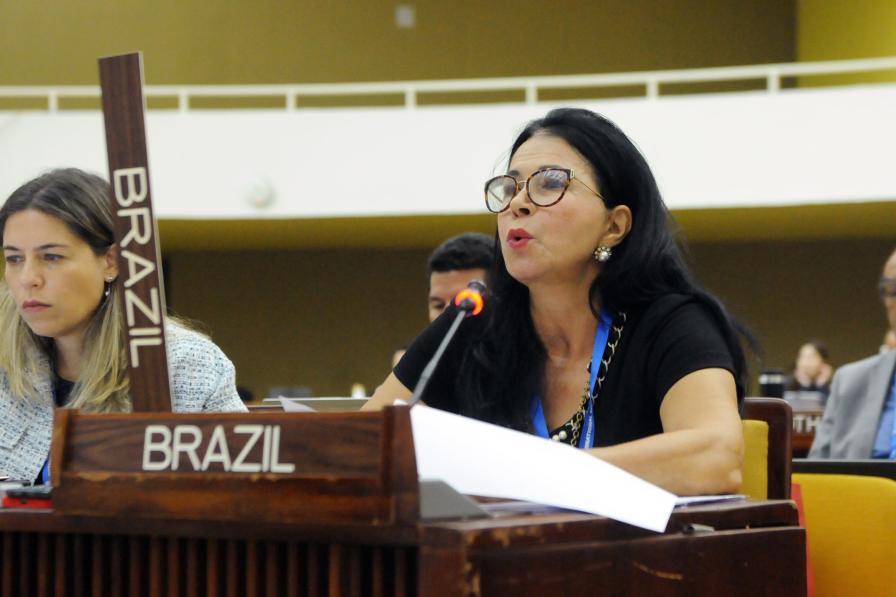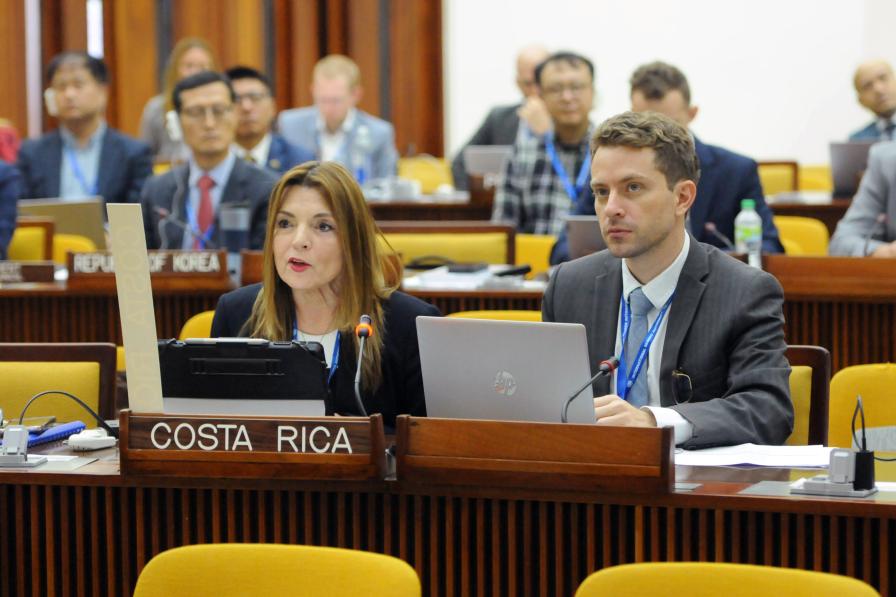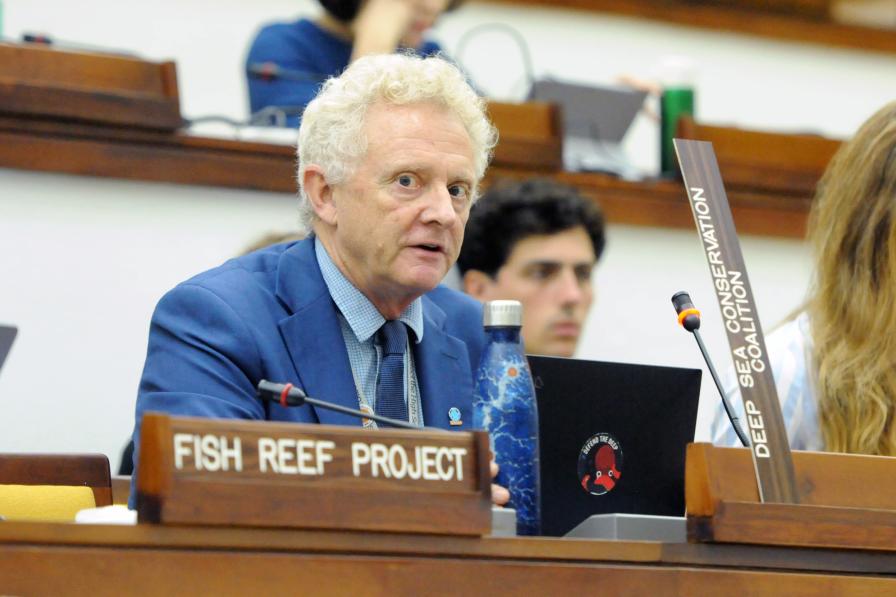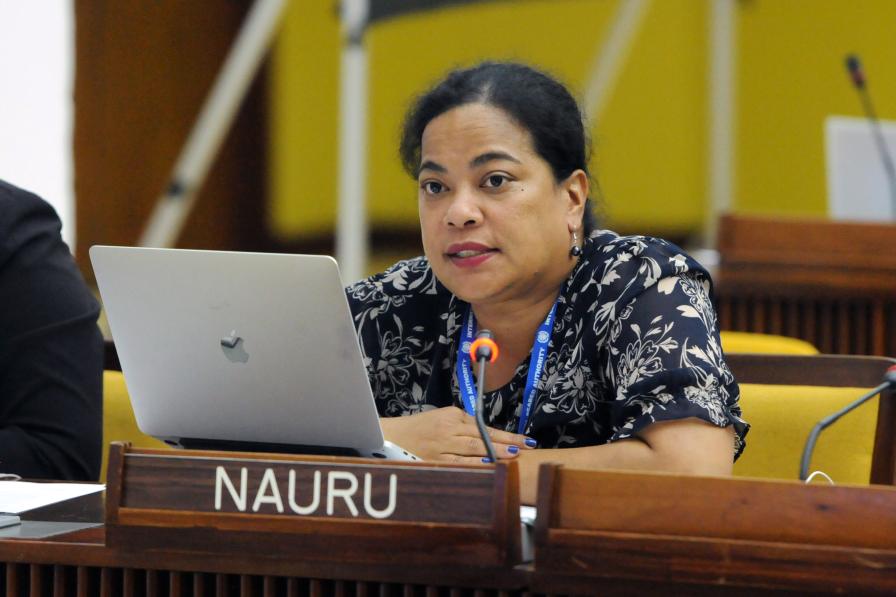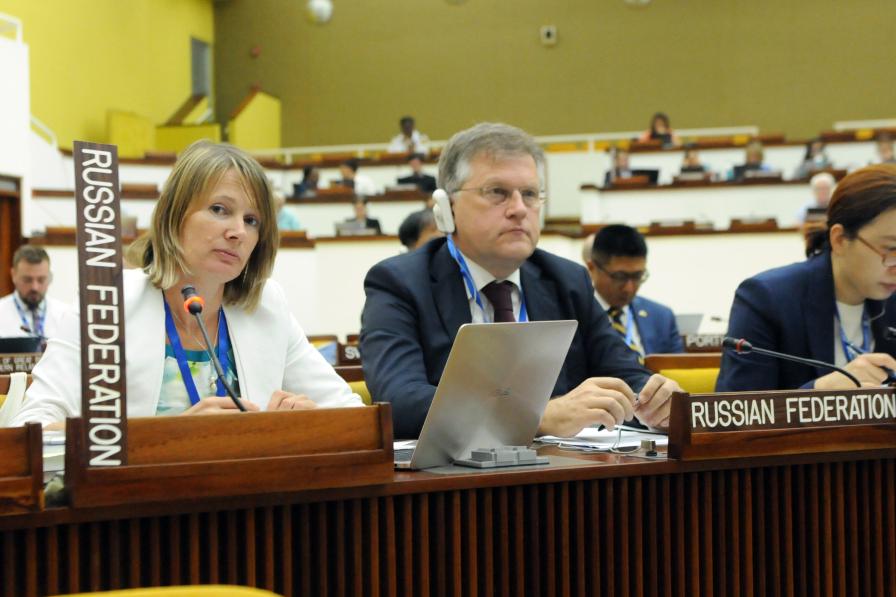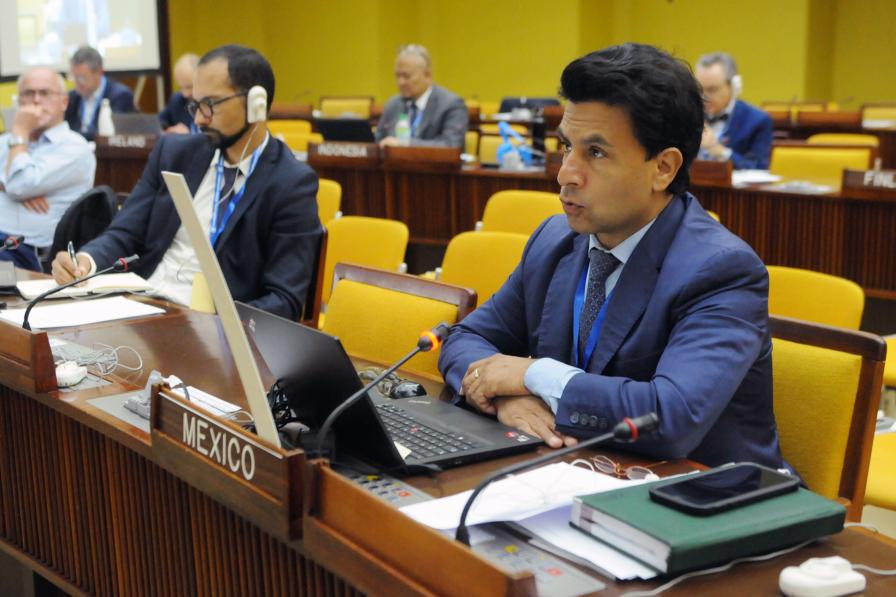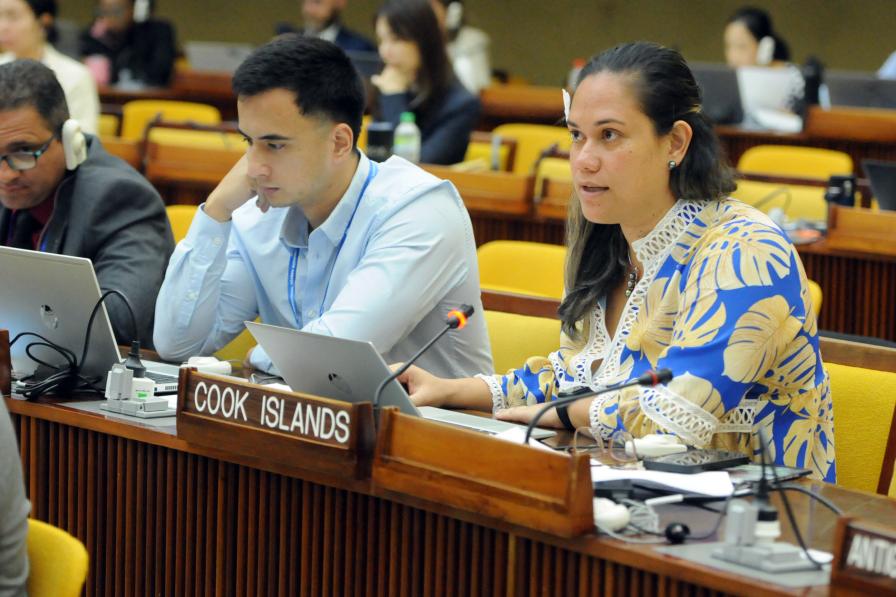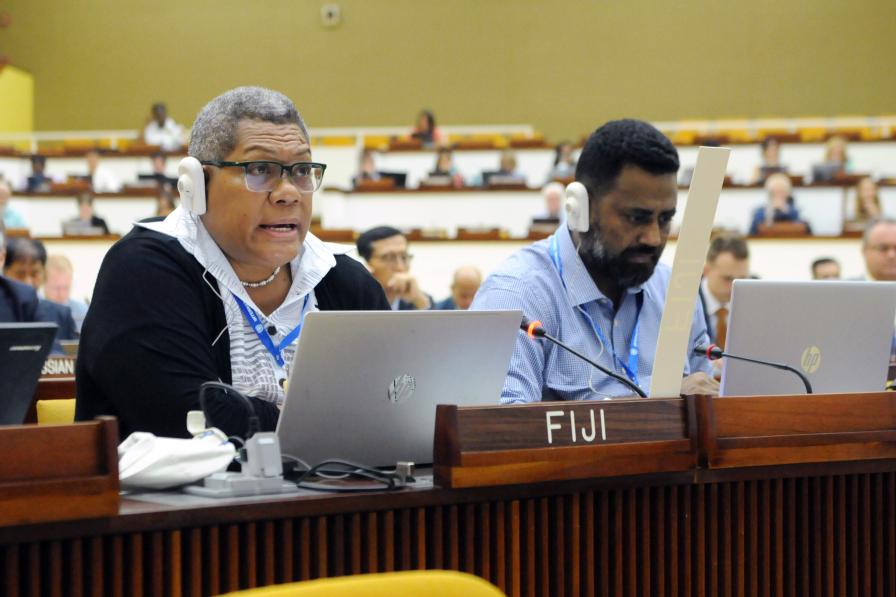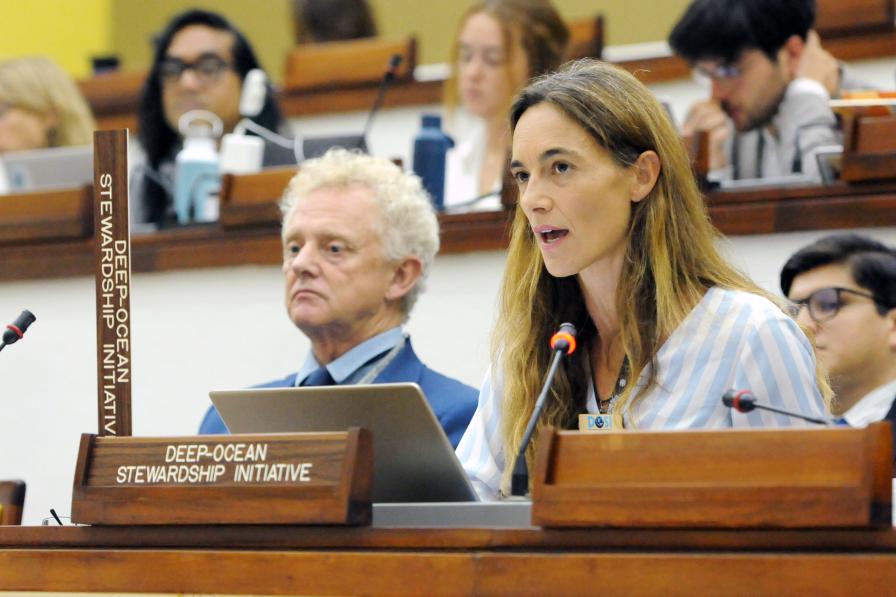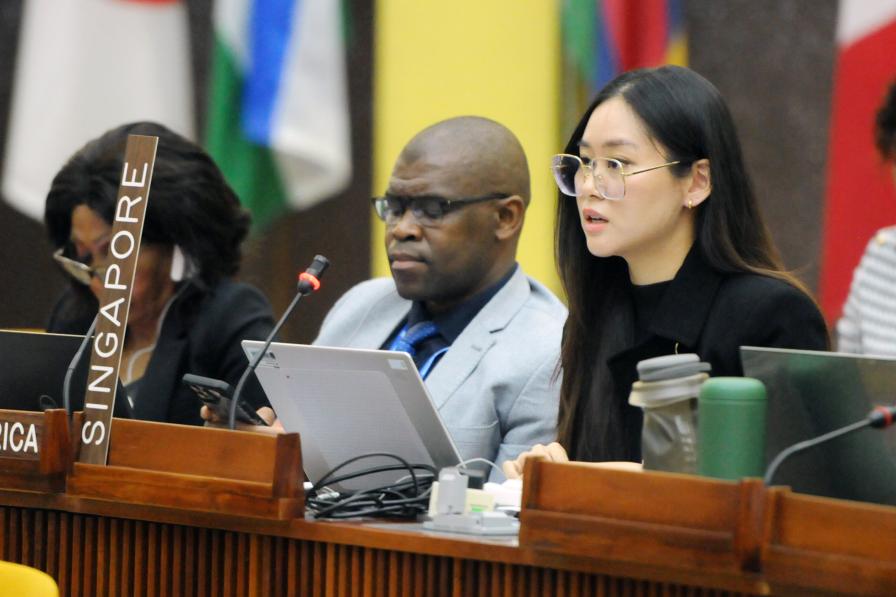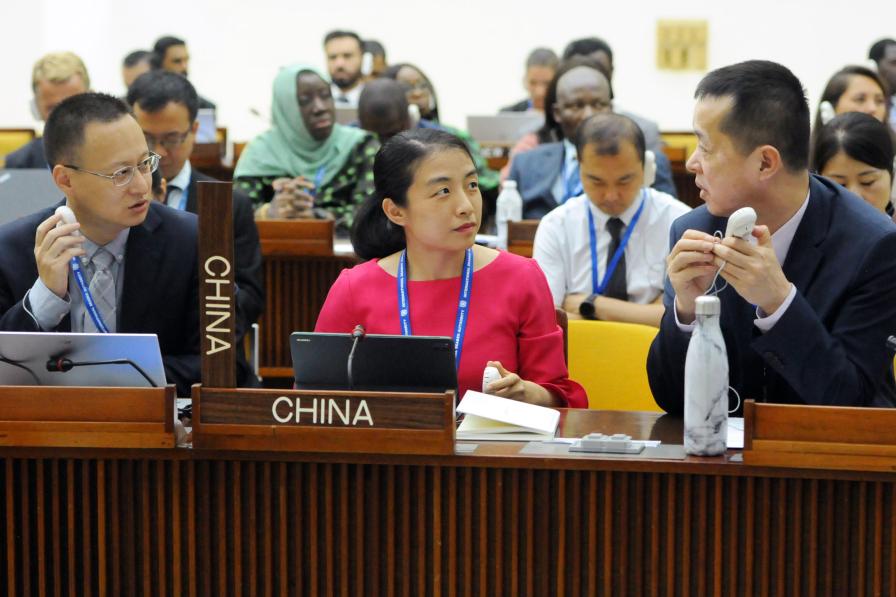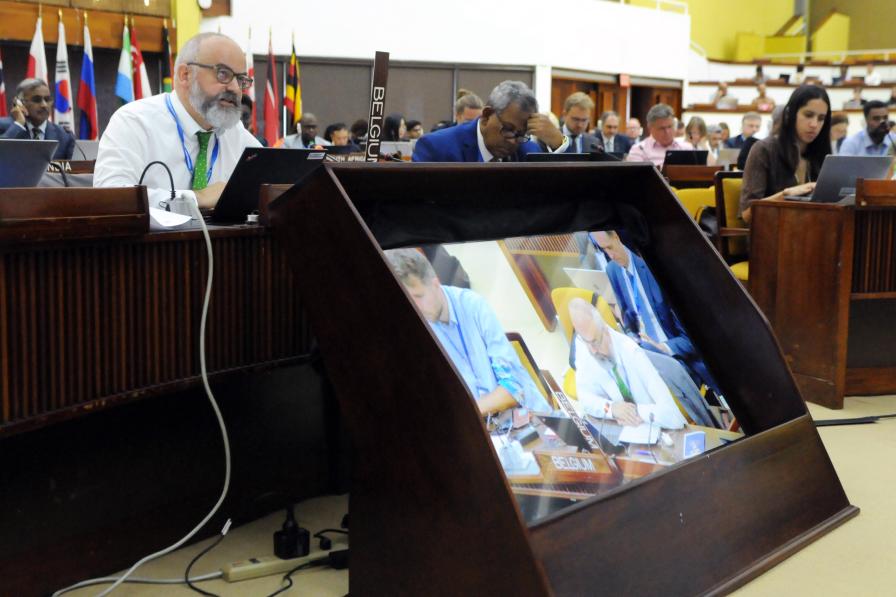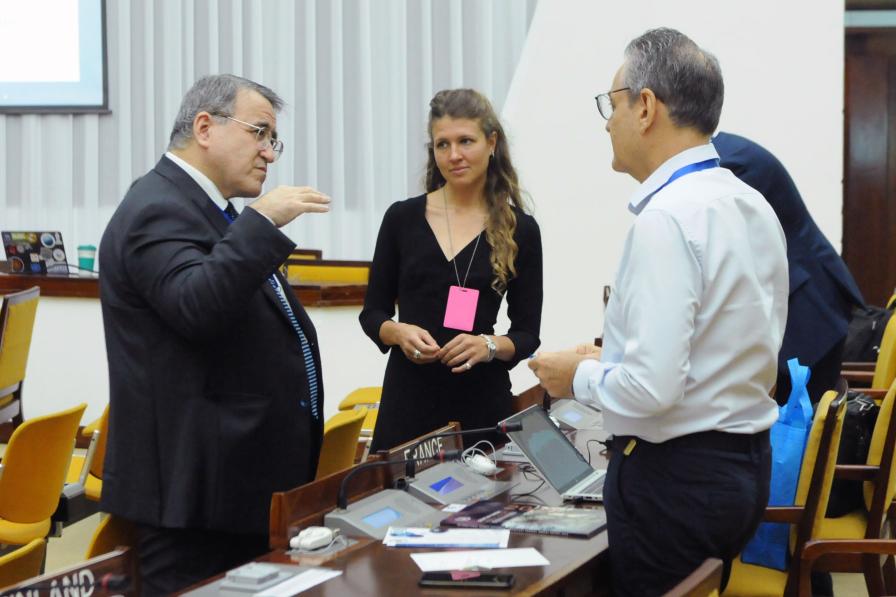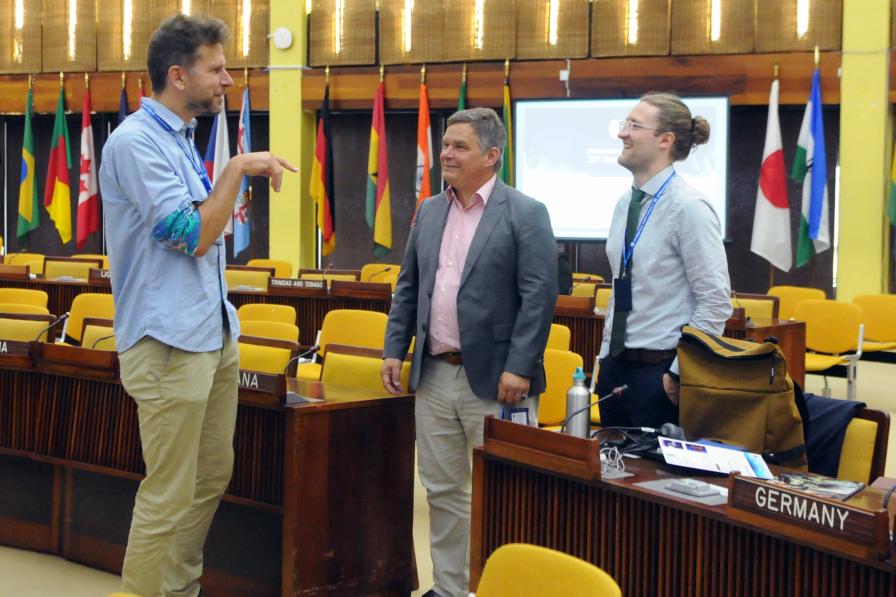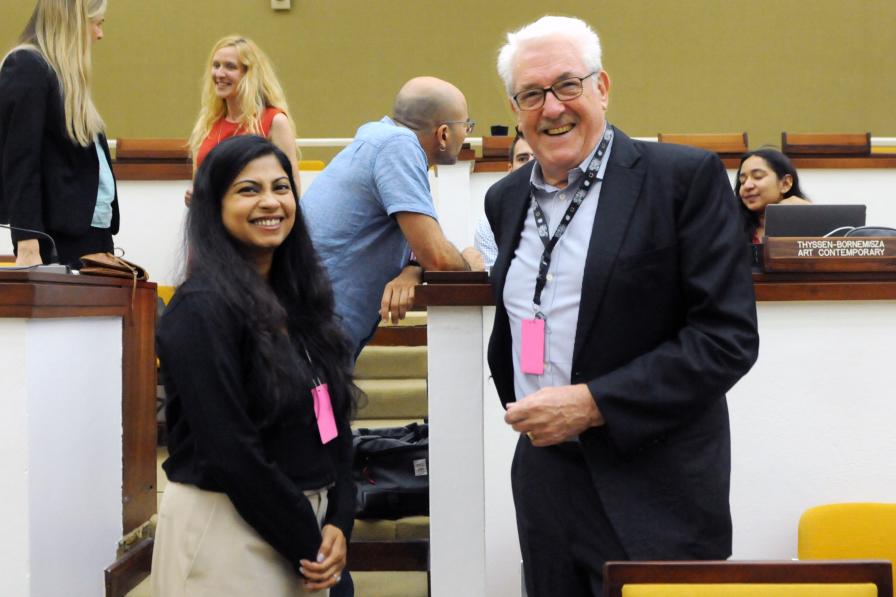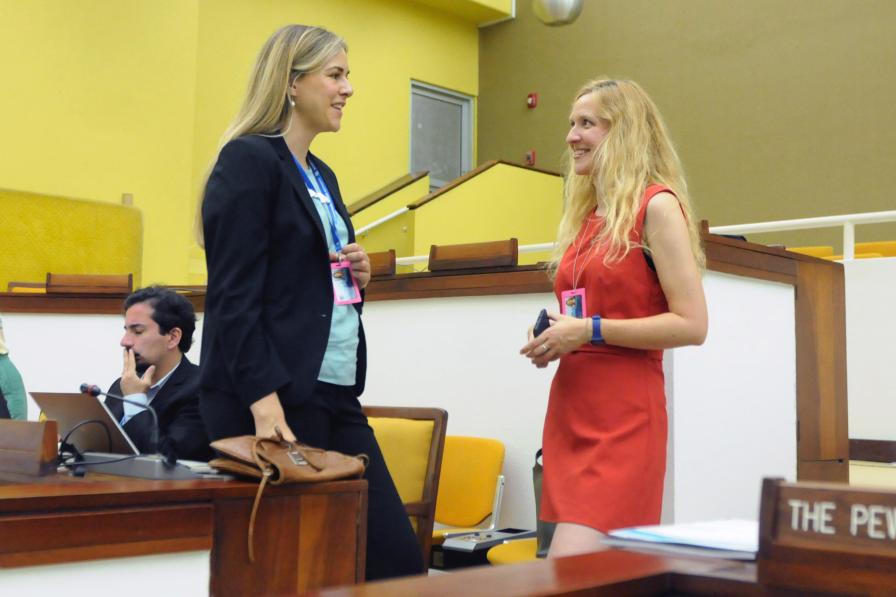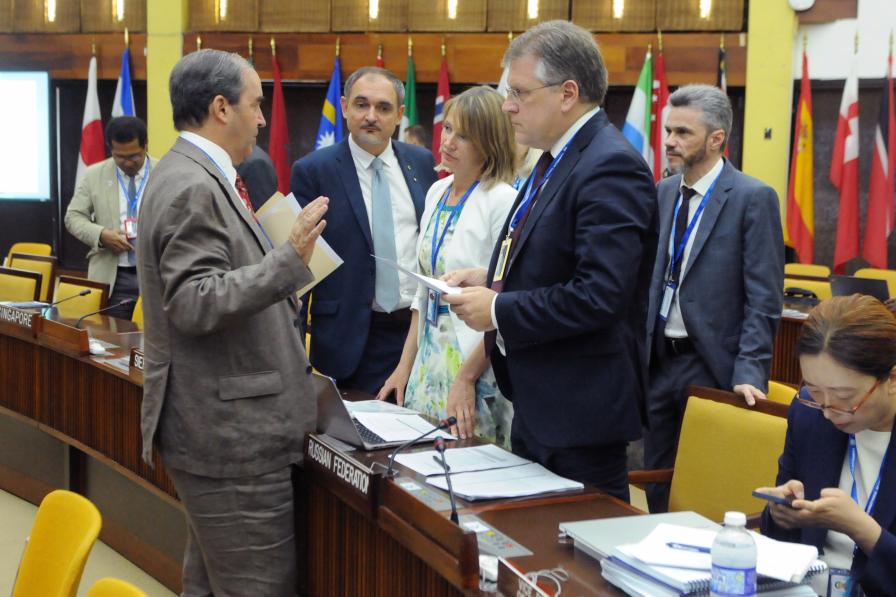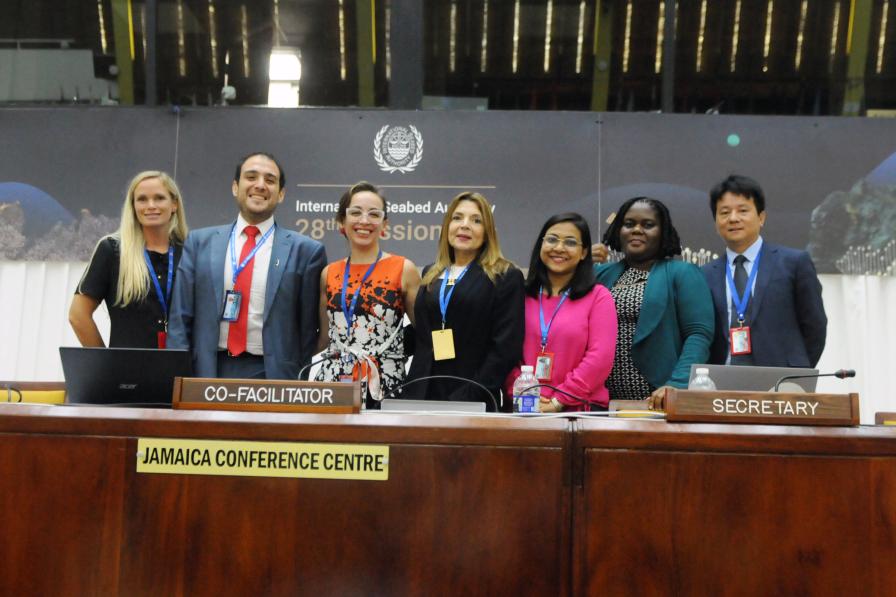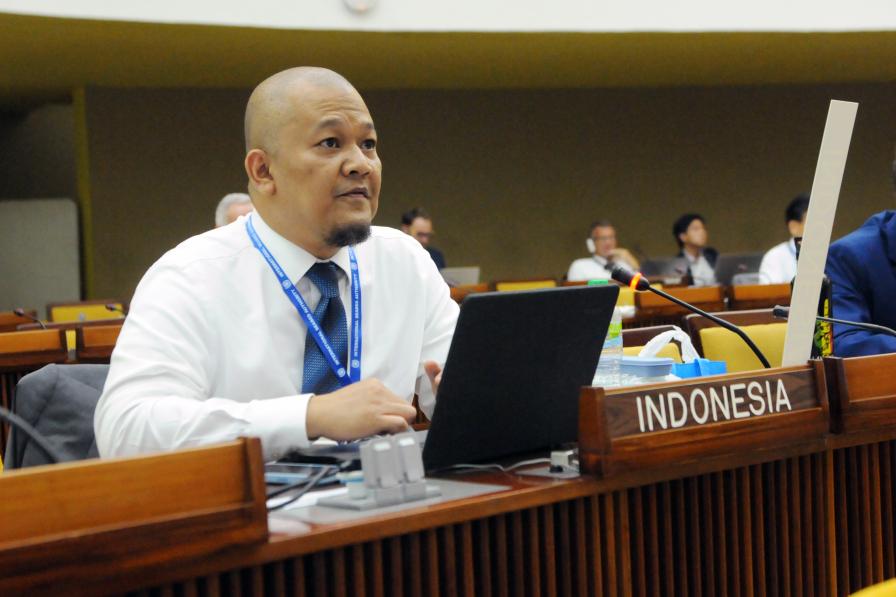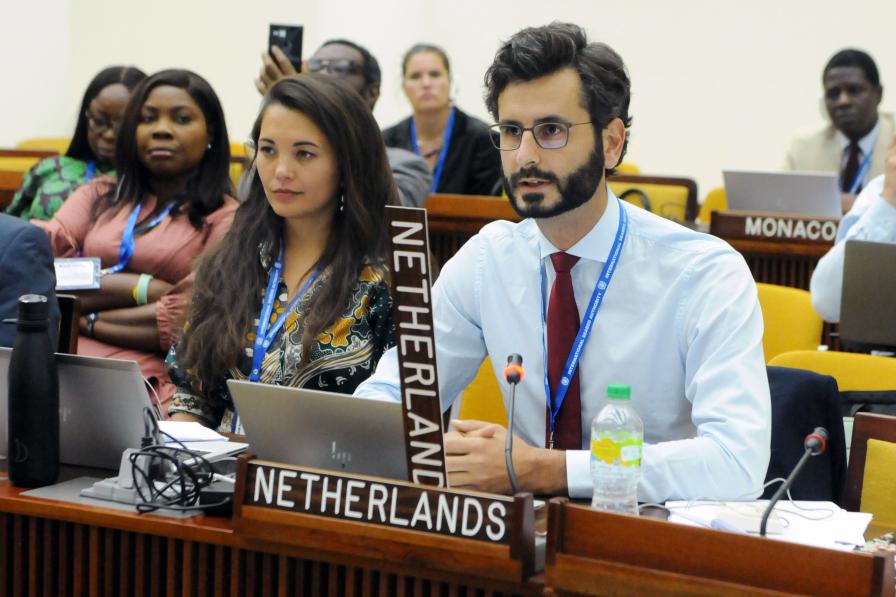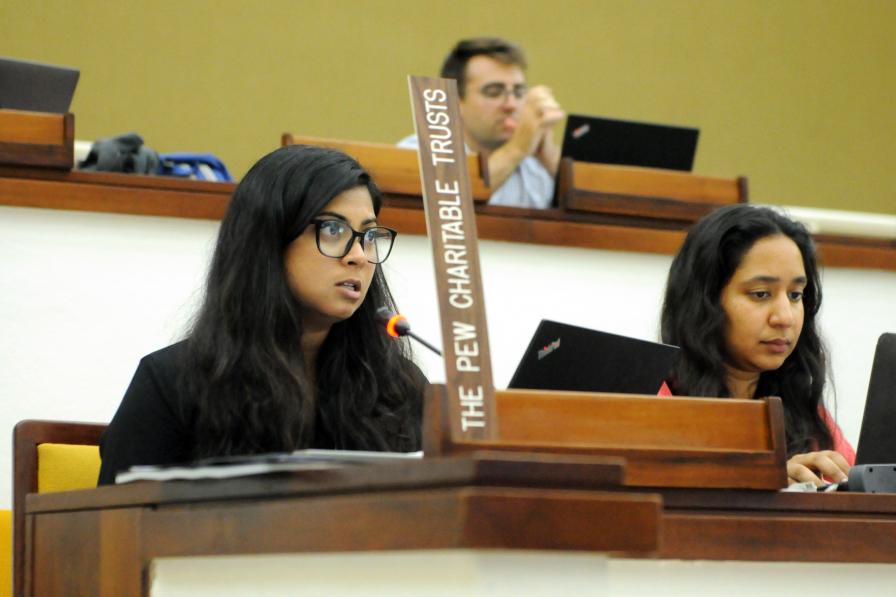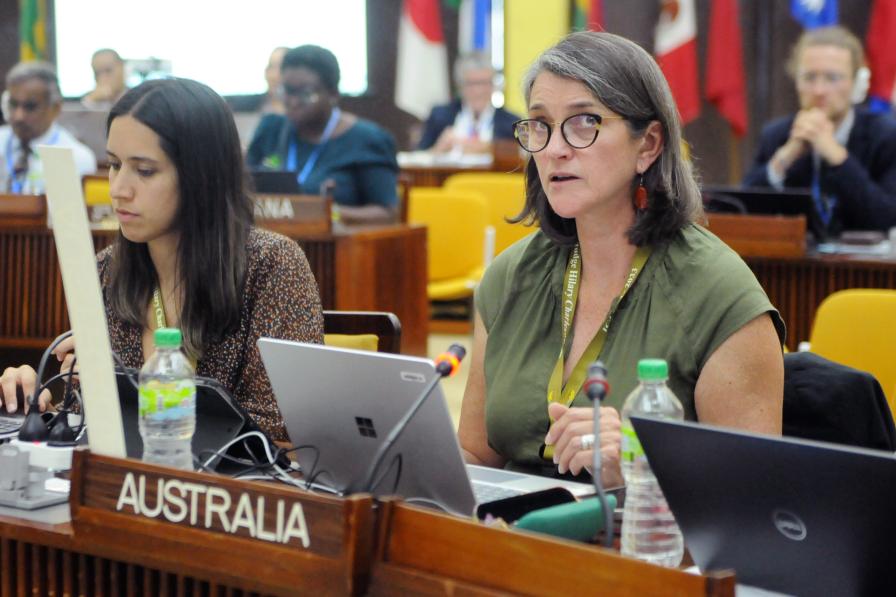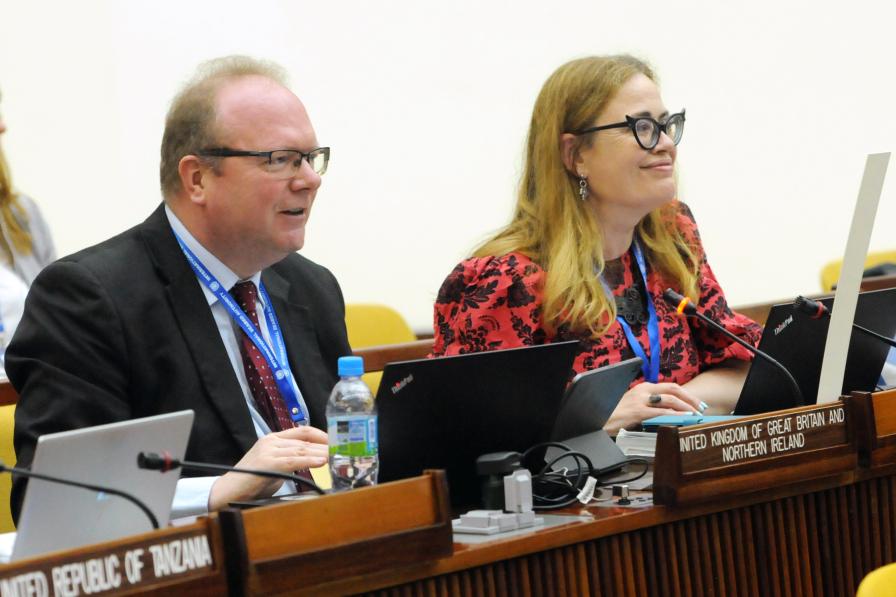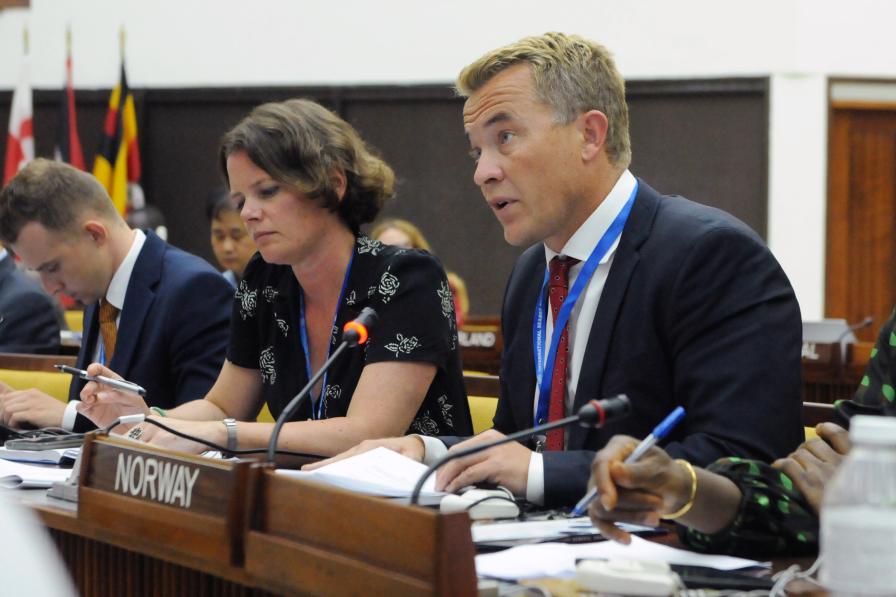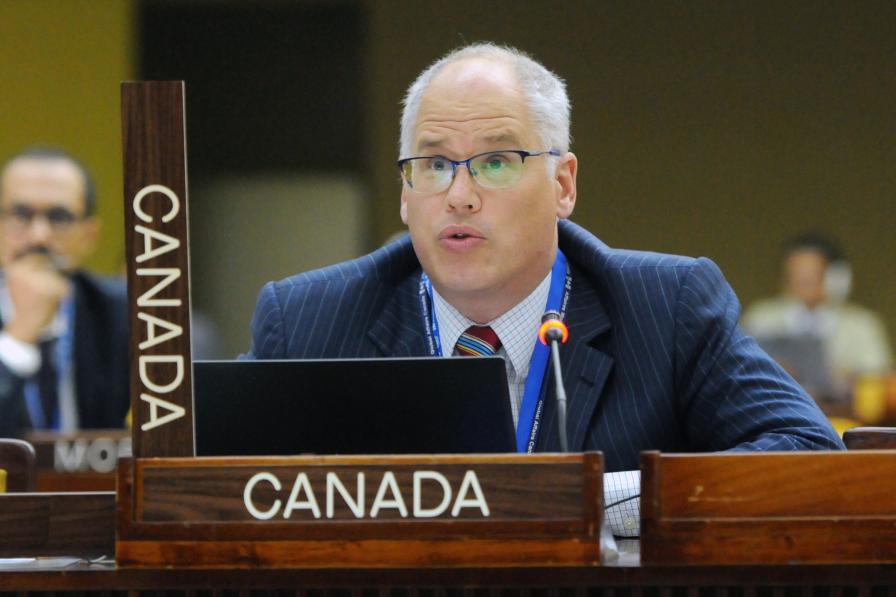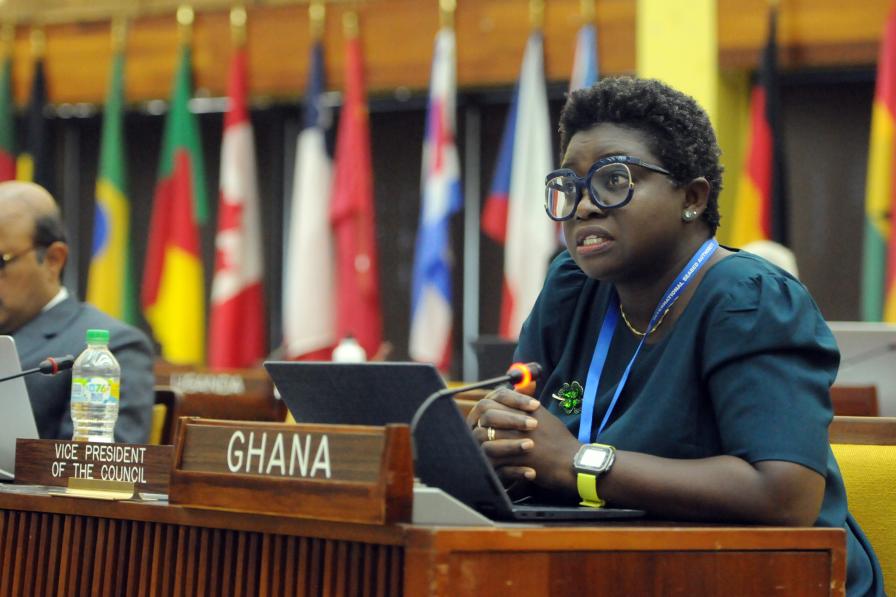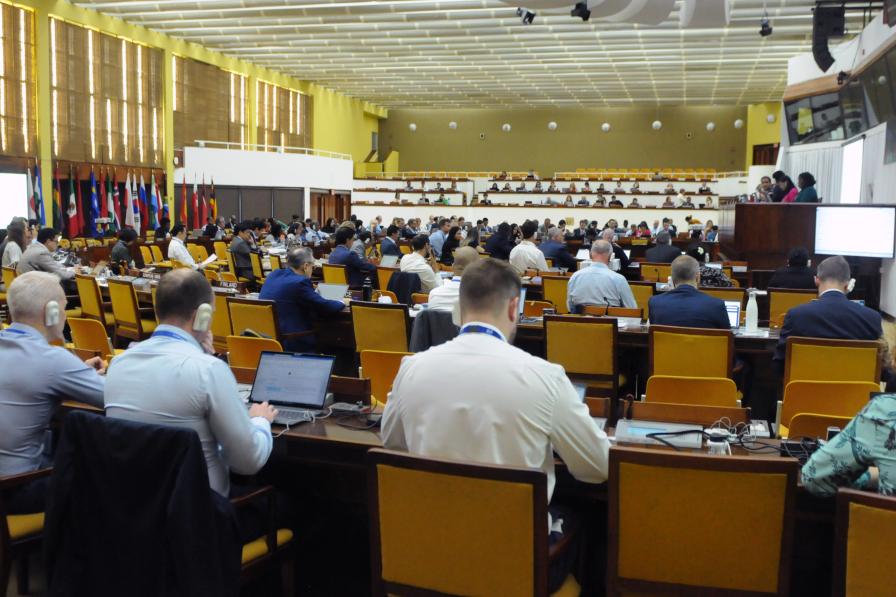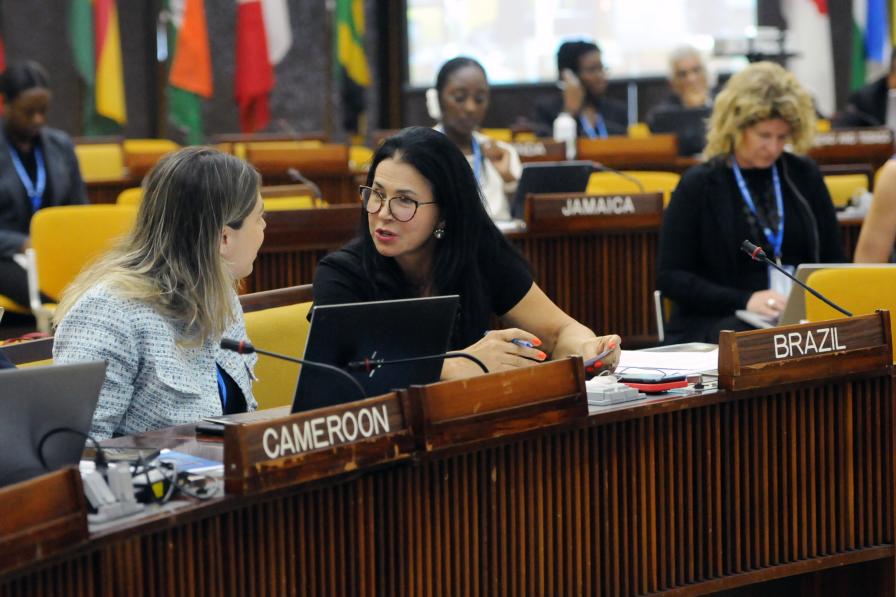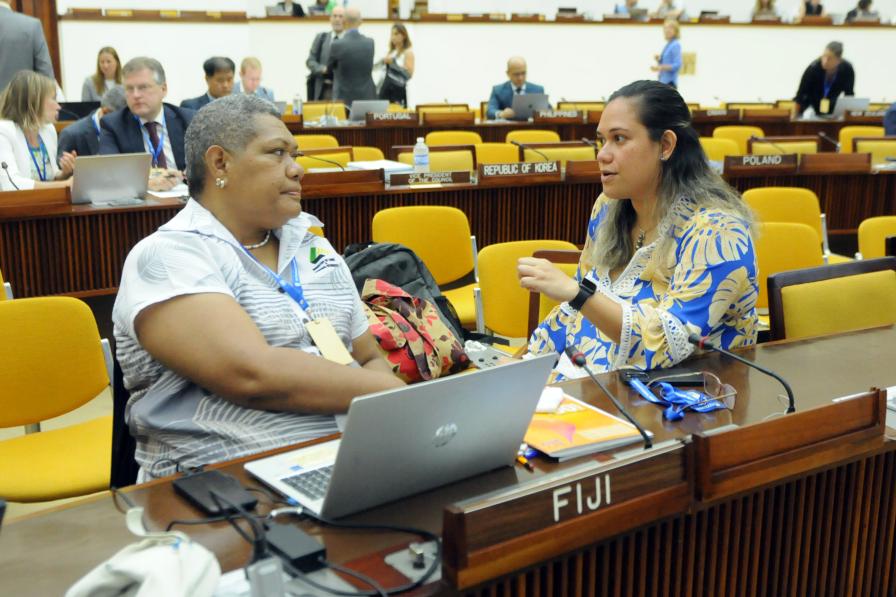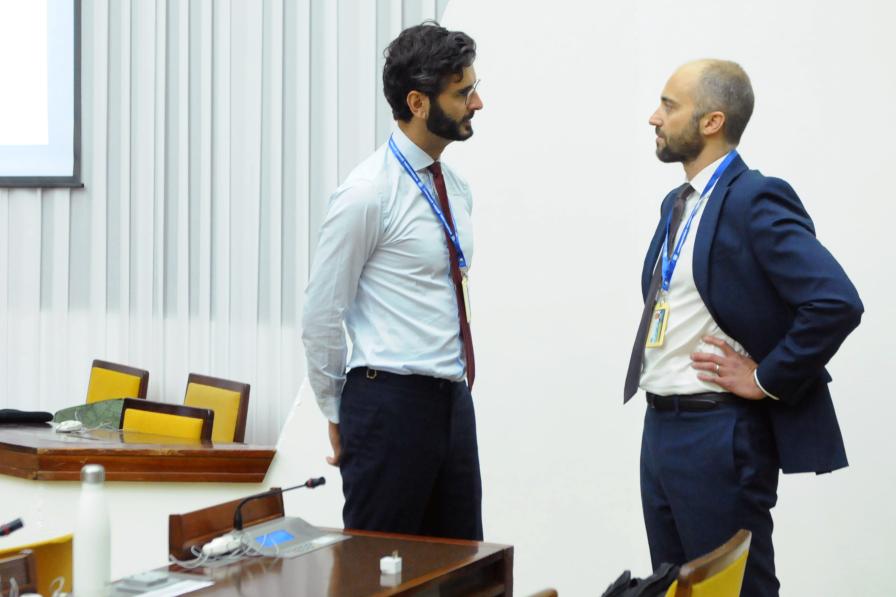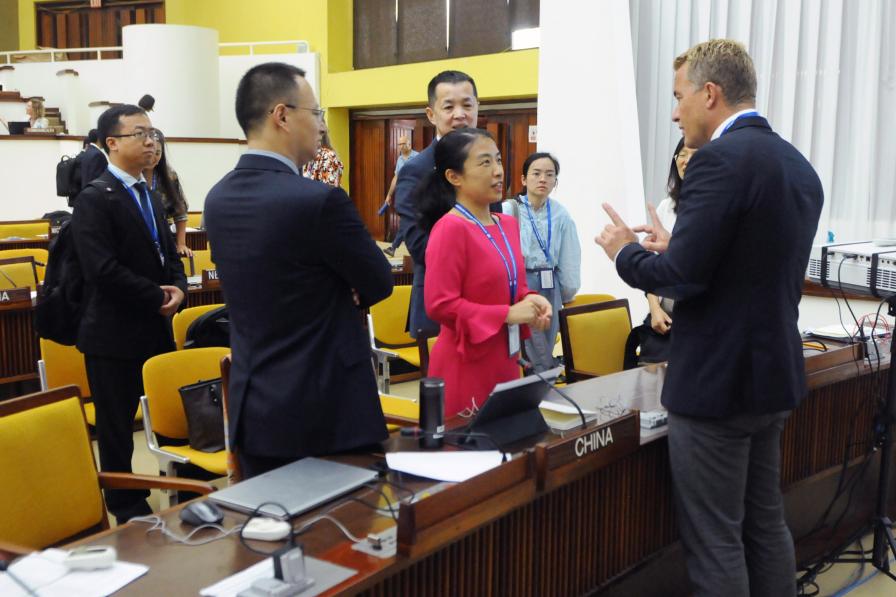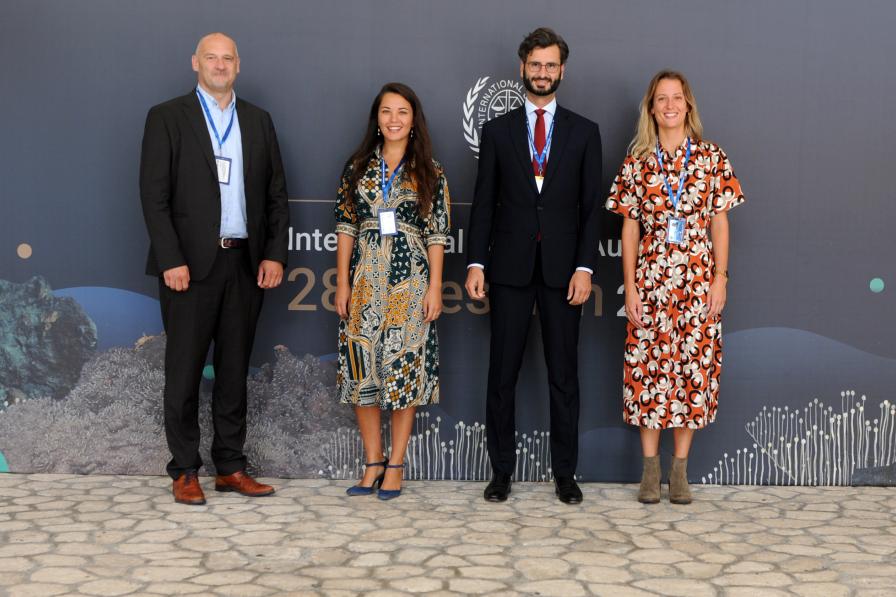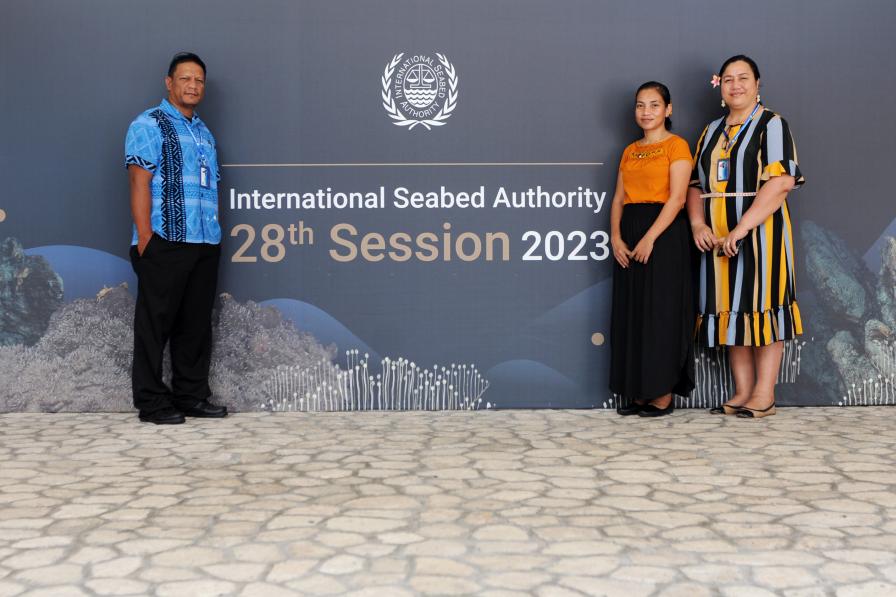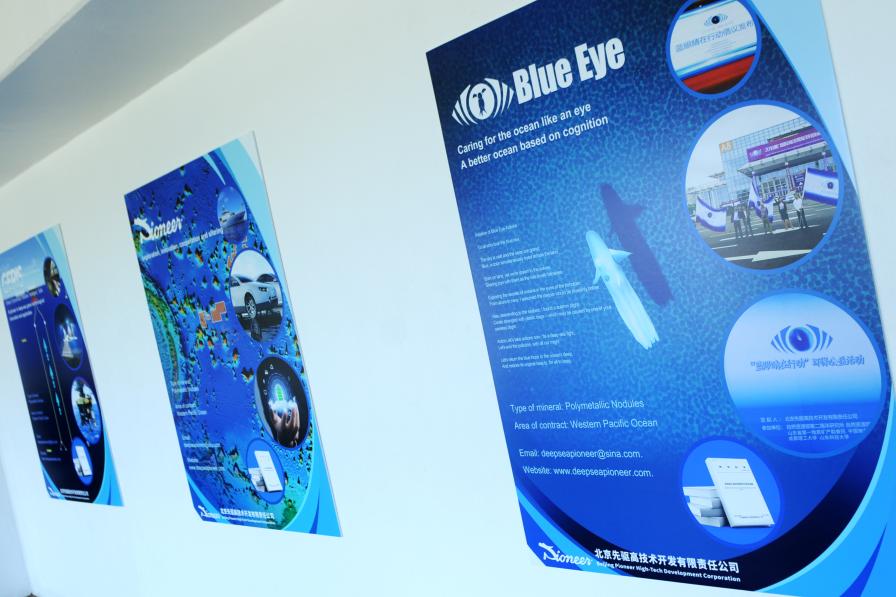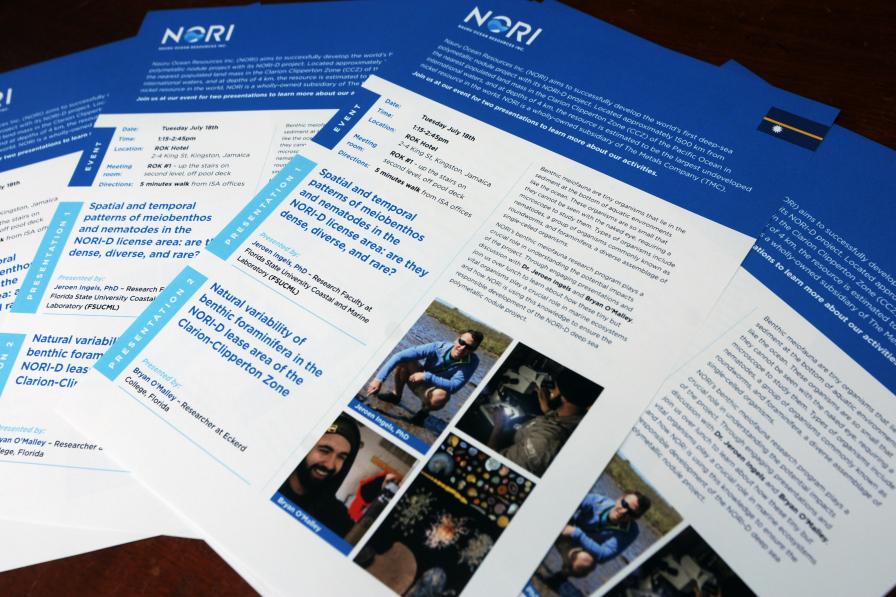Addressing cases of non-compliance by contractors, operationalizing the benefit-sharing mechanism for deep-sea mining under the principle of the common heritage of humankind, and institutional issues linked to effective control were among the main topics at the opening of the second week of the International Seabed Authority (ISA) Council meeting.
In the morning, ISA Secretary-General Michael Lodge presented his report on the implementation of the decision of the Council in 2022 relating to the reports of the Chair of the Legal and Technical Commission (LTC). He focused on the actions to be taken by the Secretary-General, including on: identifying instances of alleged non-compliance and regulatory action, stating that as of 31 May 2023, he had not identified any; and the preparation of a draft data management strategy for the period 2023-2028 for consideration by the LTC.
Regarding delays in the submission of two five-year periodic reports highlighted in the report, many Council members urged further refining the review process, noting that late submission of annual and periodic review reports is problematic for the effective administration of exploration contracts. Some members supported authorizing the Secretary-General to issue an automatic written warning and a monetary penalty to the contractor. Others suggested further discussing imposing sanctions, including: extenuating circumstances; the amount of fine being commensurate to the severity of the violation; and providing an opportunity for contractors to remedy the infringement.
A few members called for disclosing the names of the contractors in breach of their obligations. Others drew attention to the need for regular engagement with sponsoring states as well as between the LTC and contractors. Some delegates drew attention to work on the improvement of ISA’s DeepData database, while observers called for further improvement regarding the data quality control system, integration, interoperability, and accessibility. Observers further lamented that the Nauru Ocean Resources Inc. (NORI) spill incident had not been identified as a case of non-compliance and called for the development of an ISA compliance strategy.
Council members further addressed the reports of the Secretary-General on credentials and the status of national legislation relating to deep seabed mining and related matters; and proposed amendments to the statute of the International Civil Service Commission. Council members took note of the reports.
Khurshed Alam, Bangladesh, Chair of the Finance Committee, presented the report of the finance committee. He drew attention, among other things, to a draft proposal for the establishment of a common heritage fund; and to the revised supplementary budget proposal for the financial period 2023-2024, which provides for an interim director general for the Enterprise and an administrative assistant.
Many delegates supported the creation of a common heritage fund. Some emphasized that prerequisites for deep-sea mining falling under contractors’ obligations, such as capacity building and the transfer of marine technology, should not be presented as additional benefits. A few proposed developing an option for allocating benefits, including financial ones, to member states. Others suggested further discussions towards a hybrid model for the benefit-sharing mechanism and the common heritage fund.
Council members took note of the report, and adopted the draft decision relating to financial and budgetary matters.
At lunchtime, delegates engaged in informal discussions on developing a standardized approach to stakeholder consultations and the two-year rule.
In the afternoon, the Informal Working Group on institutional matters started its deliberations, with co-facilitators Georgina Guillén-Grillo (Costa Rica) and Salvador Vega Telias (Chile) suggesting focusing on provisions on effective control. Facilitator Guillén-Grillo gave a presentation on the concept of effective control, focusing on its content, noting that “effective control” is the relationship between the state and contractor throughout the contract and can be distinguished from the “responsibility to ensure,” which is an ongoing duty for the sponsoring state to exercise regulatory control over the contractor. She highlighted differing interpretations with potentially significant implications, inviting the Council to take a proactive decision. The co-facilitators proposed holding an intersessional webinar to discuss this issue in September 2023.
Many Council members highlighted the importance of provisions on effective control, welcoming the webinar suggestion. A delegate offered preliminary comments, emphasizing the national approach, which equates to effective regulatory control.
On the certificate of sponsorship (regulation 6), delegates discussed: streamlining the draft regulation for consistency with the exploration regulations; potentially including additional information in the certificate, such as a company registration number or legal entity identifier; potential joint sponsorships; and provisions on sponsoring states doing their due diligence, beyond developing relevant national legislation, to ensure that contractors meet their obligations.
On the form of applications and information to accompany a plan of work (regulation 7), Council members agreed to delete reference to “all stages of the process chain,” noting it falls outside the ISA’s mandate. Some delegations asked for further clarification on the reference to a maritime security plan. Delegates engaged in a lengthy discussion on the biding nature of regional environmental management plans (REMPs), including whether regulatory provisions should be “in line,” “in accordance,” or “consistent with” REMPs.
On the area covered by an application (regulation 8), discussions focused on whether to reference the World Geodetic System 84 or the most recent applicable international standards used by the ISA, and how to reflect that the exploitation area “shall be located in an area previously subject to an exploration contract.”
In the evening, a side event hosted by WWF focused on the need to “think deeply about the impacts of deep seabed mining.”
All ENB photos are free to use with attribution. For the 2nd Part of the 28th Annual Session of the ISA, please use: Photo by IISD/ENB | Diego Noguera
To receive free coverage of global environmental events delivered to your inbox, subscribe to the ENB Update newsletter.
